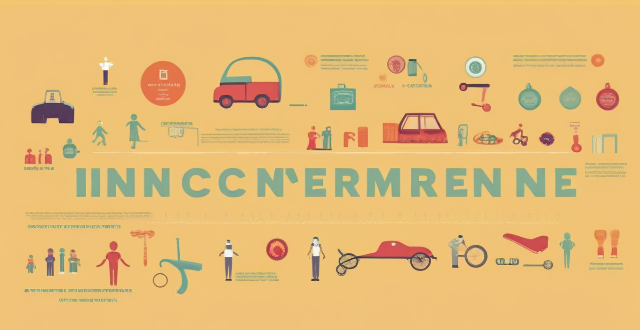Insurer Insurance

Is it better to purchase insurance through an agent or directly from the insurer ?
Purchasing insurance through an agent offers personalized service, convenience, and access to multiple insurers. Direct purchases from the insurer can be cheaper and streamlined but lack personalization and support. The best choice depends on individual needs and preferences.

Can I extend my travel insurance coverage if I extend my trip ?
Topic: Extending Travel Insurance Coverage Summary: If you extend your trip, you may need to extend your travel insurance coverage. This depends on your policy's terms and the flexibility of your insurer. To extend coverage, contact your provider, provide details about your extended trip, pay an additional premium, and confirm the extension in writing. Consider timing, potential coverage changes, and alternatives if necessary.

How does the claims process work after I've bought insurance ?
After purchasing insurance, understanding the claims process is crucial. The process typically involves documentation and preparation, filing a claim, assessment and investigation, approval or denial, receiving benefits, and considering deductibles/excesses and policy renewal impacts. It's important to gather evidence, notify your insurer, complete a claim form, provide necessary details, review the initial assessment, potentially undergo an investigation, receive approval or denial, arrange for payment, follow up as needed, pay any deductibles/excesses, and be aware of potential premium impacts at renewal. Refer to your policy documents for detailed instructions tailored to your insurance provider's processes.

What is the best travel insurance for international trips ?
When it comes to choosing the best travel insurance for international trips, there are several factors to consider. Look for a policy that covers medical expenses, trip cancellation/interruption, baggage and personal effects, emergency evacuation and repatriation, travel delay and missed connection, and identity theft protection. Consider the deductibles and limits of each coverage type within the policy. Pay attention to exclusions and limitations such as pre-existing conditions, adventure sports and activities, and geographical limitations. Look for a reputable insurer with excellent customer service ratings and a smooth claims process. Compare prices across different insurers and policies to find one that fits your budget without compromising on essential coverage. By taking into account these key points, you can choose a policy that provides adequate protection and peace of mind for your next adventure abroad.

How does having a pre-existing condition impact my ability to buy insurance ?
The text discusses the impact of pre-existing conditions on insurance purchase, including eligibility, cost, waiting periods, exclusions and limitations. It also provides tips for buying insurance with a pre-existing condition such as researching options, disclosing relevant information, considering government-sponsored plans, and working with an insurance broker.

What steps can I take to lower my insurance premiums over time ?
The text provides a comprehensive guide on how to reduce insurance premiums over time. It emphasizes the importance of maintaining a good driving record, improving credit scores, bundling policies with one insurer, increasing deductibles, staying healthy, regularly reviewing and updating coverage, taking advantage of available discounts, paying premiums annually, and staying loyal to an insurance company for potential long-term customer discounts. The advice is structured in a clear and actionable manner, encouraging readers to analyze their needs and shop around to ensure they are getting the best rates possible.

How does age affect the cost of insurance ?
The article discusses how age affects the cost of insurance, with younger drivers typically paying higher premiums than older drivers. It highlights that health insurance costs can increase as people age due to increased risk factors and the need for more frequent medical care. Life insurance rates may also rise with age, while auto insurance rates may decrease for retired drivers who spend less time on the road. Homeowners insurance costs depend on the condition and value of the home, but older homes may require more maintenance and repairs. The article provides tips for managing insurance costs as you age, including reviewing coverage regularly, maintaining a good driving record, staying healthy, and considering long-term care insurance.

How can I ensure that I'm getting the best price for my insurance ?
To ensure the best price for your insurance, shop around using comparison websites and direct insurers, consider brokers, increase your excess, pay annually instead of monthly, improve security measures, build a no-claims bonus, review coverage regularly, take advantage of discounts, maintain good credit history, avoid small claims, and renew early. These steps can help you save money on insurance while still ensuring adequate coverage.

What is the process of buying insurance online like ?
The text provides a detailed guide on how to buy insurance online. It outlines the process in eight steps: researching and identifying needs, selecting an insurance provider, getting a quote, reviewing policy details, completing documentation, making payment and receiving policy documents, confirmation and follow-up, and activating coverage. The benefits of buying insurance online include convenience, comparison, transparency, and speed. However, precautions such as ensuring security and legitimacy of the website, and fully understanding the policy terms should be taken.

How does credit history influence insurance rates ?
The text discusses how credit history influences insurance rates. Insurers use credit history as a predictor of future claims and risk, with studies showing that individuals with poor credit histories are more likely to file claims and cost insurers more money than those with good credit histories. Several factors can affect insurance rates based on credit history, including payment history, amount owed, length of credit history, and types of credit used. Maintaining a strong credit history can potentially save money on insurance premiums and demonstrate financial responsibility to insurers.

What kinds of questions should I expect during the insurance application process ?
When applying for insurance, you will be asked a variety of questions to assess your risk level and determine the appropriate coverage and premiums. These questions cover personal information, employment details, health history, lifestyle habits, driving record, insurance history, financial information, beneficiaries and dependents, and additional questions related to hobbies, travel plans, and pets. Honesty is crucial when answering these questions as providing false information can result in denied claims or policy cancellation. It's essential to review your application carefully before submitting it to ensure all information is accurate and complete.

What are the most important factors to consider when purchasing insurance ?
When purchasing insurance, important factors to consider include the type of coverage needed, deductibles, premium costs, insurer reputation, and policy terms and conditions. It's important to choose a policy that provides adequate coverage for your specific situation while also considering cost and provider reputation.

Can I get sports insurance for my child who plays school sports ?
Sports insurance can provide coverage for athletes participating in organized sports, including school sports. Consider factors like age limit, type of sports, level of competition, and coverage details when selecting a policy. Cost, duration, additional benefits, and the application process are also important considerations. While sports insurance offers peace of mind and financial protection, it can be expensive and may have limitations. Evaluate your child's needs and consult with an insurance professional to make an informed decision.

What happens if I need to cancel my trip after purchasing travel insurance ?
If you need to cancel your trip after purchasing travel insurance, review your policy for coverage details and time limitations. Contact your insurer to inform them about the cancellation and provide necessary documentation. File a claim by submitting a claim form with supporting documents. Wait for reimbursement, which may vary in processing time and method. Consider rescheduling instead of cancelling if your policy includes trip interruption coverage. Understand that there might be non-refundable expenses even with coverage. Each policy is different, so review your specific policy details and contact your insurer for tailored guidance.

How is climate change affecting the insurance industry ?
Climate change is significantly impacting the insurance industry by increasing natural disasters, altering liability exposures, and prompting regulatory changes. Insurers must adapt to these challenges by updating risk assessment models, complying with new regulations, shifting investment portfolios towards sustainability, and innovating products. This adaptation is crucial for insurers' financial resilience and their role in aiding societal adaptation to climate change.

What is the role of an insurance broker in the buying process ?
Insurance brokers act as intermediaries between clients and insurers, guiding them through the buying process. They assess client needs, research policies from various insurers, provide expert advice, facilitate the application process, and offer ongoing support and service. Their expertise helps clients make informed decisions about their coverage needs.

How much does travel insurance usually cost ?
The cost of travel insurance can vary greatly depending on factors such as destination, duration of trip, coverage level, and individual characteristics like age and health condition. To find the best policy for your needs, compare policies from different insurers, look for discounts, consider annual plans if you travel frequently, and review exclusions and limitations carefully.

What is the difference between term life insurance and whole life insurance ?
Difference between term life insurance and whole life insurance: - Term life insurance is temporary coverage, no cash value, renewable, and affordable. - Whole life insurance is permanent coverage, accumulates cash value, has level premiums, and is more expensive.

How does sports insurance work ?
Sports insurance is a specialized form of insurance that protects athletes and sports participants from financial losses due to injuries or accidents that may occur during physical activities. It provides coverage for medical expenses, lost wages, and other related costs associated with sports-related injuries. There are several types of sports insurance policies available, including personal accident insurance, liability insurance, equipment insurance, and travel insurance. Sports insurance typically covers a wide range of sports-related injuries and accidents, including medical expenses, disability, funeral costs, legal fees, equipment damage or theft, and travel expenses. The cost of sports insurance varies depending on several factors, including the type of sport, the level of risk involved, the policyholder's age and health status, and the amount of coverage desired.

Is there an age limit for buying travel insurance ?
Is there an age limit for buying travel insurance? Most providers do not impose any restrictions based on age, but some policies may have specific requirements or limitations regarding age. When purchasing travel insurance, consider factors such as coverage options, pre-existing medical conditions, adventure sports coverage, cost, and reputation.

How much does sports insurance cost ?
The cost of sports insurance varies based on the type of sport, level of coverage, and individual's age and health status. High-risk sports typically have higher premiums than lower-risk activities. Basic policies may only cover medical expenses and lost wages due to injury, while more comprehensive plans may include additional benefits such as disability coverage and accidental death and dismemberment insurance. Younger athletes may have lower premiums than older ones, and individuals with pre-existing medical conditions or a history of injuries may face higher premiums. Tips for finding the best sports insurance policy include shopping around, considering bundling, and asking about discounts.

Is sports insurance necessary for amateur athletes ?
This article explores the necessity of sports insurance for amateur athletes. It defines sports insurance as coverage against injuries sustained during sports activities, including medical expenses, lost income, rehabilitation costs, equipment damage, and liability coverage. The article highlights the risks and costs associated with sports injuries, noting that 62% occur during recreational activities rather than competitive events. It argues that sports insurance offers peace of mind, financial protection, and access to quality care for amateur athletes but may not be necessary for all. Factors to consider when deciding whether to purchase sports insurance include risk level, personal finances, existing health insurance, and frequency of participation.

Can I buy travel insurance for someone else, like my parents or children ?
The article discusses the possibility of buying travel insurance for someone else, such as family members. It highlights the importance of understanding the specific requirements and restrictions associated with this process. The text provides a step-by-step guide on how to purchase travel insurance for someone else, emphasizing the need to choose the right policy that fits the insured person's needs and provides adequate coverage for their trip.

How can insurers help promote sustainability and reduce carbon emissions ?
Insurance companies can promote sustainability and reduce carbon emissions by offering sustainable insurance products, encouraging sustainable practices among clients, investing in sustainable projects, and reducing their own carbon footprint.

Are there any tax benefits associated with buying certain types of insurance ?
The text discusses the tax benefits associated with buying various types of insurance, including health insurance, life insurance, disability insurance, long-term care insurance, and homeowner's insurance. The benefits include tax-deductible premiums and tax-free death benefits for certain policies. It is emphasized that consulting a tax professional or financial advisor is crucial to understand how these benefits apply to individual situations, as tax laws vary by country and can be complex.

How much life insurance do I need ?
Determining how much life insurance you need is a complex process that depends on your financial situation, income replacement needs, debts and final expenses, current coverage, and consultation with a professional. Assessing your financial needs, calculating income replacement needs, considering debts and final expenses, evaluating current coverage, and consulting with a professional are all important steps to ensure you have the right amount of life insurance coverage for your loved ones.

Are pre-existing medical conditions covered by travel insurance ?
Travel insurance coverage for pre-existing medical conditions varies by policy and provider. Factors influencing coverage include the type of policy, deductibles and limits, waiting periods, and disclosure of information. Some policies offer limited or comprehensive coverage for these conditions, while others exclude them altogether. It is crucial to research different policies and consult with an insurance professional to find the best coverage for your individual needs.

What role does the insurance industry play in mitigating climate change ?
The insurance industry plays a crucial role in mitigating climate change through various mechanisms. They assess and price risks associated with climate change, providing financial incentives for mitigation, invest in sustainable projects, apply stricter underwriting criteria for high-emission industries, collaborate on research efforts, innovate insurance products, educate clients about climate risks, lobby for climate policies, and support reinsurance to share risks globally and back catastrophe bonds. By integrating climate considerations into their business models, insurers can drive progress toward a more sustainable future.

Can I purchase travel insurance after booking my trip ?
The article discusses the possibility of purchasing travel insurance after booking a trip. It emphasizes that buying travel insurance early provides more comprehensive coverage, peace of mind, and potentially better prices. To purchase travel insurance after booking, one should research different policies, contact their travel agent or insurance company, provide relevant information, read the policy details carefully, and keep documentation safe. The article concludes that buying travel insurance early is generally recommended for optimal coverage and peace of mind during travels.

What is sports insurance and why is it important ?
Sports insurance, also known as athletic or sports-related insurance, is a type of insurance that covers athletes and participants in physical activities from injuries or accidents. It includes coverage for medical expenses, lost wages, and other damages resulting from an injury or accident. Sports insurance is important because it provides protection against injuries, lost wages, liability, and offers peace of mind for athletes. It allows them to participate in their chosen sport without worrying about the financial implications of an injury or accident.